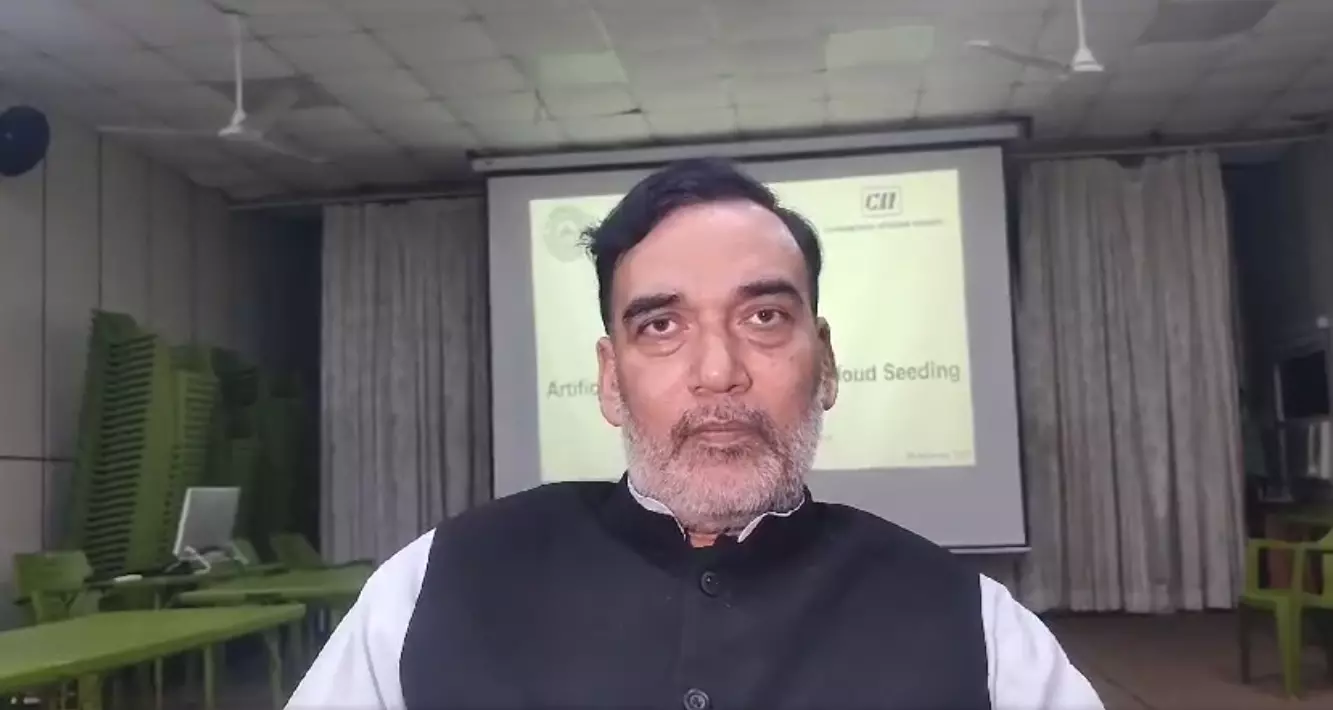
Delhi AQI shoots by 100 points overnight; BJP instigated people to burn crackers: Gopal Rai

New Delhi, Nov 13 (PTI) People associated with the BJP instigated others to burn firecrackers on Diwali, leading to an overnight increase of over 100 points in the national capital's air quality index, Delhi Environment Minister Gopal Rai alleged on Monday.
At a press conference here, he said the firecrackers burnt in Delhi were sourced from Uttar Pradesh and Haryana, and that certain individuals, including the police of these states, permitted the transportation of those firecrackers to the city.
"Delhi would not have been suffering had these states implemented the ban on firecrackers and their police did their duty properly," Rai said.
He also said that stringent measures, including a ban on construction work and the entry of polluting trucks into Delhi, under Stage IV of the Centre's air pollution control plan will continue in Delhi till further orders.
Rai added that the Delhi government has decided to extend its campaign to control dust pollution till November 30 and launch a month-long drive against open burning of waste from November 14.
Delhi recorded a jump in pollution levels and a smoky haze returned on Monday morning after residents flouted the ban on firecrackers on Diwali night.
The city recorded its best air quality on Diwali day in eight years on Sunday, with its 24-hour average Air Quality Index (AQI) settling at 218 at 4 pm.
However, firecrackers bursting till late Sunday night led to a spike in pollution levels amid low temperatures.
The AQI stood at 275 (poor category) at 7 am and gradually rose to 322 by 12 noon. Pollution levels neared the 'severe' category (AQI between 400 and 450) in some areas, including Ayanagar (382), Central Road Research Institute (393) and Pusa (391).
The concentration of PM2.5, fine particulate matter that can penetrate deep into the respiratory system and trigger respiratory problems, exceeded the safe limit of 60 microgrammes per cubic metre by six to seven times in these areas.
Firecracker bursting pushed the PM2.5 concentration at many places, including Okhla and Jahangirpuri, in the capital over 1,000 micrograms per cubic metre in the early morning hours. PTI

